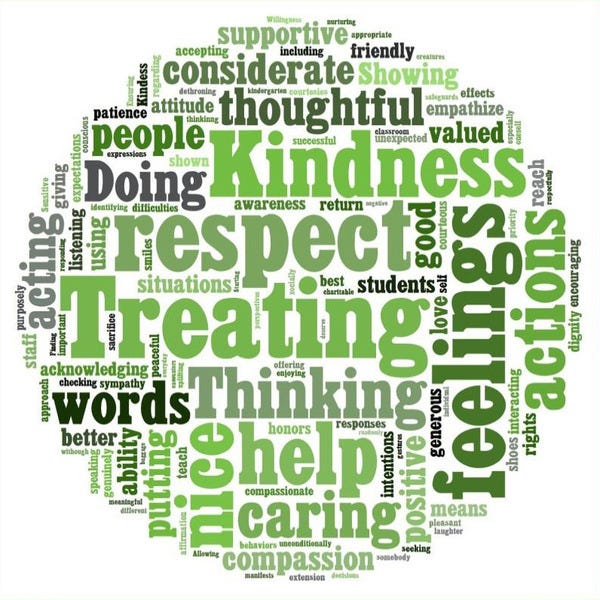Mensch•Mark For Elul 3: A Minimum of Frivolity - Miyut Sechok
Where does humor end and trolling begin? This is not the time to jettison our sense of humor, but let’s just go with a little less sarcasm - and a touch more subtlety.
A Minimum of Frivolity-Middah Miyut Sechok
URJ’s Take:
Translation
“A minimum of frivolity.” The word miyut comes from the Hebrew root mem-ayin-tet and means "little or limited." The word sechok comes from the Hebrew root sin-chet-kuf and means "laughter, playfulness, or jest."Text
"He who undertakes to be an associate scholar (chaver) may not be profuse in laughter." (Demai 2:3)Commentary
Our text suggests that anyone who wants to be a scholar must not engage in too much laughter. It is puzzling that too much laughter is considered a negative virtue and is discouraged. Is it possible that the rabbis were merely concerned about students having too much fun and not spending enough time on their studies?
The great Talmudic teacher, Rabbi Akiva, best known for his wisdom and his diligence in studying Torah, suggested another reason for miyut sechok. He warned: "Raucous laughter and frivolity predispose a person to behavior that is not virtuous." (Avot 3:13)
Simeon Ben Jesus Ben Sira, a great sage and scribe who lived in the second century BCE, identified laughter as a sign of foolishness. In his book, The Wisdom of Ben Sira, he wrote: "A fool raises his voice in laughter, a wise man smiles in silence.” (Ben Sira 21, 20)
In Sefer Aggadah, the following story is told to illustrate the concern for moderation in laughter and celebration, even at a joyous occasion. Mar, the son of Ravina, made a marriage feast for his son. When he saw that the sages were getting overly merry, he brought a precious cup worth four hundred zuz and smashed it before them, and they grew serious. (The Book of Legends, p.714)
Although we are warned that excessive laughter leads to behavior that is inappropriate, especially for someone who wants to be a scholar, we are also advised that too somber a mood is not conducive to study or growth in Torah either. The Talmud reports that Rabbah would commence his lectures with an amusing statement in order to put his disciples in a relaxed state of mind. (Midrash Shmuel, Tiferes Yisrael)
Rabbi Nachman of Bratslav (1772-1810) was another great Jewish figure who appreciated the significance of humor. Reb Nachman wrote, "There are men who suffer terrible distress and are unable to tell what they feel in their hearts, and they go their way and suffer and suffer. But if they meet one with a laughing face, he can revive them with his joy. And to revive someone is no slight thing." (The Book of Jewish Values, Telushkin)
MARLENE MYERSON
My Take: What’s funny, what’s offensive, and what’s just weird?
JD Vance was shocked, shocked that people were so offended by his “cat ladies” comment. But in fact the goal of the comment was to shock, shock. He just forgot to be funny while doing it. He later claimed that it was just a little sarcasm, but the way one handles humor tells us a lot about character. Even though he made the comment long before the current campaign, it was both patently offensive and patently unfunny; just like his sharing of an embarrassing video of a mangled answer of a former Miss Teen USA last month to somehow mock Kamala Harris. The New York Times reports that in 2015, the contestant told New York magazine that the embarrassment she felt over the viral video had led to depression and thoughts of suicide.
Hardy-har-har!
But when confronted with the fact that he had dredged up such devastating memories, Vance said he had no regrets.
Can’t people just take a joke?
Frankly, to label such “jokes” as “weird,” shortchanges both humor and weirdness. It’s just plain cruel, and it’s a pattern. BTW, in the interest of bipartisanship, I find the couch jokes about Vance to also be mean-spirited and counterproductive (though occasionally funny).
Jews know the difference between spiteful and funny, between spot-on satire and mean-spirited sloppiness, from centuries of experience. It’s a fine art. When done right, it can deal a devastating blow (“I can see Russia from my house!”) - when not, it could invite devastating blowback.
In 2007, the late radio shock-joke Don Imus crossed the boundary where humor becomes offensive, in directing racial epithets at the Rutgers women’s basketball team. He took deep regrets to his grave in 2019 and in fact he was never able to wipe away the stain of that “joke.”
At the time of his infraction, I took the opportunity to assemble a number of sources on the boundaries of humor, exploring the subject from a Jewish perspective after Imus had - again in “jest,” deeply offended Jews by referring to the "Jewish management at whoever we work for, CBS" as "money grubbing bastards."
Not funny.
It’s a very difficult tightrope to navigate, but where it is executed properly, humor can be essential to overcoming the powerlessness of dark times - and Jews have had many of those. So in order to skirt danger, the Jews invented a community called Chelm (the place is real, the community is not), whom they could skewer mercilessly for their stupidity. It was the Jewish version of a “Polish” Joke, only the target was mythical - and therefore safe.
When it comes to Purim, however, almost anything goes. The holiday is a veritable workshop on how to do humor right. Jews do on Purim what we do the rest of the year as well -- we poke a little fun at ourselves. On this most topsy turvy of days, we understand that the secret of life is to enjoy the ride - and laugh a little all the while.
Who is the best Jewish comedian of all time? My vote goes to Kohelet, author of the biblical book of that name (a.k.a.Ecclesiastes), which is read on the intermediate Shabbat of Sukkot. While little in the book would qualify as LOL funny (and the author himself equates laughter with madness), the use of irony and wordplay, the in-your-face skepticism and not-so-subtle subversiveness expose the absurdity of life and presage some of the best Jewish comics of the modern era.
These days, Jewish comedians are straining to get it right. It might always be “too soon” to joke about certain elements of the Holocaust. But the same thing might have been thought regarding the Lincoln assassination until someone uttered sometime in the 1950s, “But how did you like the show, Mrs. Lincoln?”
With the Holocaust, that “not too soon” moment might have been in 2017, when Larry David went on Saturday Night Live and talked about the absurdity of coming up with good pickup lines at a concentration camp. The monologue was met with considerable shock from the Jewish community, even though it hardly is the first time the Holocaust had been a source of humor by Jews – but most of the prior jokes had been told at the expense of the perpetrators rather than the victims.
When I heard David’s quip, I recoiled at its insensitivity, instinctively saying to myself, “too soon.” But then I reflected for a moment about the shock I was feeling that this joke was “too soon.” Was it because survivors are still among us? Or did I gulp so hard at the realization that the “too soon” threshold had just passed before my eyes. It is no longer “too soon” to usher the Holocaust into the realm of normalcy, to treat it as history, to begin to remold it, rethink it, and even play with it, and in doing so, to re-imagine the Judaism that the victims bequeathed to us.
For humor is in fact a matter of timing. A few years ago, the New Yorker did a parody on the pseudo equation, "Comedy = Tragedy + Time," which is itself a parody traceable back to Steve Allen in the late '50s. Like most parody, this equation contains an element of truth. The truth here is that there is a very fine line separating what is demonstrably funny ( = What makes us laugh) and what is in utterly poor taste (= What gets us mad as hell and causes us to write nasty letters).
In this hyper politicized season, we need to find that sweet spot between satire, which can be funny, and trolling, which rarely is.
A recent scholarly article defines online trolling as “a specific antisocial behavior that involves malicious and deliberate provocation of others, with no apparent instrumental motivation.” Jewish humor is far too subtle to cross over into trolling - and Jews far too aware of the consequences. Sure, people slip up from time to time. I’ve done it myself. But this month before the High Holidays might be a perfect time to put those filters in place and pause a moment before sending around that “hilarious” meme that might be just a little bit edgy.
Still, this is absolutely not the time to jettison our sense of humor. Let’s just go with a little less cruelty and frivolity - and a touch more subtlety. And by all means, Kamala Harris, keep on cackling! It drives them crazy!
Jokes from 40 famous Jews - Jewish jokes to make you laugh (Moment)
Every year just before Purim, I dedicate a Shabbat to Jewish humor. Below is a recording of my final “Jewish Joke Night” in Stamford. The jokes begin about four minutes in (enjoy the terrific music too). Warning: one of the jokes, delivered by the sweetest, most unassuming elderly lady, turned out to be a little bit - um - salty.



No comments:
Post a Comment